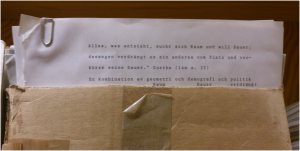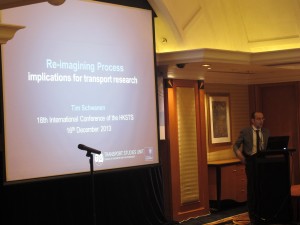Transportation equity is an important and growing component of urban social and spatial justice. The crises associated with the Covid-19 pandemic, global economic recession, climate change, and racial injustice have only made more urgent the need to consider transportation as a key input in building an actionable “right to the city” for all.
Previous research has developed both a robust vocabulary through which to discuss transportation in light of diverse theories of justice, and a range of quantitative and qualitative metrics by which to evaluate transportation equity initiatives. The foundations set by this body of research and the pressing examples of urgent need in the contemporary transportation environment together suggest new, creative, and rigorous engagements by asking what transportation equity and justice mean today and how a more just distribution of transportation resources can be achieved.
In particular, the COVID-19 pandemic and climate change have shifted how people travel in cities around the world. Many cities have used these crises as opportunities to experiment with various strategies to promote more equitable travel options, especially for those who lack access to an automobile.
Recognizing the interdisciplinary nature of this topic, and building on the theme of this year’s Annual Meeting “Toward More Just Geographies”, we encourage submission of conceptual, theoretical, or empirical research that draws on different research traditions within our discipline – i.e., transport geography, urban geography, urban planning, urban design, etc. – and/or takes different methodological approaches – i.e., quantitative, qualitative, mixed methods. We encourage papers that: a) move beyond the analysis of socio-spatial inequalities to more explicitly discuss the need for procedural, recognition, restorative and epistemic justice within the transport domain; b) highlight equity/justice-oriented research that better describes the mobility, accessibility, and/or safety of users who travel by means other than automobiles; and/or c) those that look at key examples from the Global South.
Topics may include, but are not limited to:
- Transportation-related gentrification/neighborhood change
- Modal shifts of workers in response to climate change/pandemic/displacement
- Innovative or cross-sectoral partnerships to address transit and active travel in the new normal
- Addressing equity and justice issues for public transit and/or active travel users during the pandemic
- Mobility related equity and justice issues with a focus on vulnerable populations such as immigrants, racial minorities, elderly, persons with disabilities, etc.
- User centric transportation system design focusing on equity and justice issues
- The geographies of predatory financial practices in transportation
- The geographies of urban protest in transport spaces
- Affordability, housing policy and transportation justice
- Environmental justice research pertaining to transportation infrastructure
- Linkages between climate change, carbon emission mitigation and transportation justice
- Policy and/or grassroots initiatives contributing to equitable mobility outcomes, and planning practices
- Emerging theories, conceptualizations, standards, or practices in mobility equity and justice
- Data collection for measuring transport poverty and its consequences
- Measuring the benefits of achieving improved transport equity
Interested presenters may submit their title, Personal Identification Number (PIN), and abstract (max 250 words) to Joshua Davidson (jdavids@design.upenn.edu by October 26, 2022. In your message, please use the email subject header “AAG 2023 – Transportation Justice abstract”. If you have any questions, please do not hesitate to contact us.
Organizers: Joshua Davidson (University of Pennsylvania); Hannah Hook (Ghent University); Hannah King (University of California, Los Angeles); Shaila Jamal (McMaster University); Dr Steven Farber ( University of Toronto); Dr Karen Lucas (The University of Manchester); and Dr Tim Schwanen (University of Oxford)


